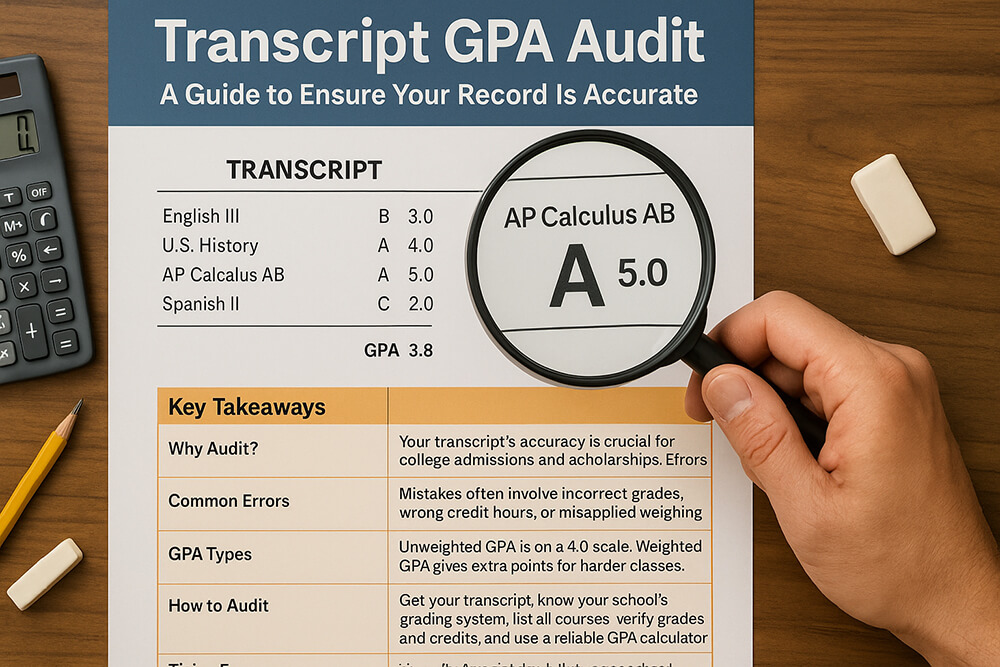Key Takeaways
| Feature | Insight |
|---|---|
| GPA Impact | Good time management is strongly linked to a higher GPA. Students who plan their time see grades improve by a full letter. |
| Top Tools | Digital calendars like Google Calendar and paper planners are both effective. Success depends on consistent use, not the specific format. |
| Core Method | Time-blocking is a key strategy. You assign specific tasks to set times in your calendar. This builds commitment. |
| Template Types | Use a mix of templates. A semester calendar gives a big picture. A weekly schedule organizes study blocks. A daily planner tracks small tasks. |
| Student Advice | Treat your studies like a 9-to-5 job. This creates a clear structure. It also protects your evenings and weekends for rest. |
| Health & Success | Scheduling breaks, sleep, and social time is vital. Rest helps you avoid burnout and stay productive. |
The Link Between Time Management and Your GPA
Good time management directly helps you earn a higher GPA. Research shows a strong connection between planning and good grades. Students with high GPAs (3.8-4.0) use time management skills much more than students with low GPAs. For example, 96% of high-GPA students plan their time well. Only 73% of low-GPA students do the same. Using a digital calendar can lead to an 11% higher GPA. Following a weekly study plan can raise your GPA by a full letter grade. These facts show that organizing your time is a powerful way to improve academic performance. A solid plan turns your effort into better grades. Our GPA calculation guide can help you track your progress.
Essential Time-Management Templates
To manage your time well, you need a few key tools. Each tool helps you plan in a different way. A semester calendar provides a long-term view of deadlines. A weekly schedule helps you block out study time. A daily planner breaks your day into small, manageable tasks. Using these templates together creates a strong system for success. This system helps you stay on top of your work and reduce stress. The main goal is to make a clear plan and stick to it. You can explore different types of GPA scales to understand how your grades are measured.
Semester-at-a-Glance Calendar
A semester calendar is your big-picture tool. It helps you see all important dates for the entire term in one place. You should add all exam dates, project deadlines, and paper due dates. Also, include university holidays and registration deadlines. Fill this calendar out on the first day of class using your course syllabi. This prevents last-minute surprises and helps you plan ahead for busy weeks. It is a simple step that gives you control over your semester. Knowing your schedule helps you manage your workload and avoid stress. This is a key part of any good GPA goal-setting worksheet guide.
Weekly Study Schedule
A weekly study schedule organizes your 168 hours each week. First, block out fixed things like classes, work, and appointments. Then, schedule study blocks for each course. A good rule is to plan 2-3 hours of study time per credit hour each week. For example, a 4-credit class needs 8-12 hours of study time. It is also important to schedule time for sleep, meals, and exercise. These are necessary for good academic performance. Finally, add time for fun and relaxation to avoid burnout. You can use a semester GPA calculator to see how your weekly efforts add up.
Daily Planner
A daily planner helps you manage your tasks hour by hour. It breaks your day into small parts, making it easier to stay focused. Each morning, list the top 3-5 tasks you must complete. As you finish each task, check it off. This simple action can boost your motivation. A daily plan gives your day a clear purpose. It helps you focus on what is most important. This habit will make you more successful and motivated. A good planner is a key tool for any student who wants to improve their grades. Our guide on study tips for better grades offers more ideas.
Digital Tools vs. Paper Planners
Students use both digital tools and paper planners to manage their time. Digital tools like Google Calendar are popular because they sync across devices and send reminders. Apps like Notion and Trello help organize complex projects. Paper planners are helpful because writing things down can improve memory. They also offer a break from digital distractions. Many successful students use a hybrid approach. They use a digital calendar for appointments and a paper planner for daily to-do lists. The best tool is the one you will use every day. To see how these habits affect your grades, you can use a college GPA calculator.
Real Strategies from Successful Students
Successful students often share what works for them. One popular tip is to treat school like a 9-to-5 job. This means dedicating specific hours during the day to schoolwork. This creates a routine and protects personal time in the evenings. Another common strategy is time-blocking. Instead of a simple to-do list, you schedule specific blocks of time for each task. This makes you more likely to follow through. Students also say that scheduling breaks is just as important as scheduling study time. Rest helps you stay focused and avoid burnout. These strategies are practical ways to manage your time and improve your GPA. You can use a cumulative GPA calculator to track your long-term progress.
Evidence-Based Time Management Techniques
Proven techniques can help you study more effectively. The Pomodoro Technique involves working for 25 minutes, then taking a 5-minute break. This helps maintain focus. The Eisenhower Matrix helps you prioritize tasks by sorting them into four categories: urgent and important, important but not urgent, urgent but not important, and neither. This helps you decide what to do first. Backward planning is great for large projects. You start with the final deadline and schedule milestones backward from that date. These methods provide a clear structure for your work. They help you use your study time wisely. For more help, check out our guide to GPA formulas.
Integrating Time Management with Your GPA Action Plan
Your time-management system should connect with your overall academic goals. Use a grade replacement ROI calculator to decide if retaking a course is a good use of your time. Your schedule must have room for the extra workload. A study-habit audit checklist can show you which study methods work best. Then, you can block out time for those specific activities. If you have an incomplete grade, you must schedule time to complete the coursework. A good time-management plan ensures you have the hours needed to achieve the GPA you want.
Avoiding Common Time Management Pitfalls
Students often make a few common mistakes when managing their time. One major pitfall is over-scheduling without leaving any room for flexibility. Life is unpredictable, and your schedule needs to adapt. Another mistake is ignoring the need for sleep to get more done. Lack of sleep hurts your ability to learn and focus. Some students also spend too much time perfecting their planning system instead of doing the actual work. The goal of a planner is to help you work, not become the work itself. Avoiding these traps is key to successful time management. Understanding common GPA calculation errors can also prevent surprises.
Time Management for Different Academic Situations
Your time management needs may change based on your academic situation. If you are taking AP or Honors classes, you need to understand weighted GPA and plan for a heavier workload. If you are a transfer student, our transfer credits GPA integrator can help you see how your previous courses impact your new GPA. This will help you plan your study time accordingly. For students in unique programs, a dual degree GPA splitter can clarify your academic standing. Each situation requires a tailored approach to time management to ensure success.
Conclusion: Your Time Is a Valuable Asset
Effective time management is one of the most powerful skills you can develop in college. It is about making deliberate choices to use your 168 weekly hours in the most effective way. The evidence is clear: students who use planners and calendars achieve higher grades. By adopting simple strategies like time-blocking and treating your studies like a job, you create the structure needed for success. Remember to also plan for rest and breaks to maintain your well-being. Start today by choosing a template, auditing your time, and building a schedule that aligns with your academic goals. Your GPA will reflect your smart work.
Frequently Asked Questions (FAQ)
1. What is the most effective time-management template for students? Both digital calendars (like Google Calendar) and paper planners are effective. The best template is one you will use consistently. Many students find success with a hybrid approach: a digital calendar for deadlines and a paper planner for daily tasks.
2. How much does time management really affect my GPA? Research shows a strong positive link. Students who actively manage their time have significantly higher GPAs. Following a weekly study schedule can improve your grades by a full letter.
3. What is time-blocking? Time-blocking is the practice of scheduling specific blocks of time for each task on your calendar. Instead of a simple to-do list, you assign tasks to set times, which increases your commitment to completing them.
4. How many hours a week should I study? A general guideline is to study 2-3 hours per week for every credit hour you are taking. For a 3-credit course, this would mean 6-9 hours of study time each week.
5. How can I avoid burnout while managing my time? Schedule breaks, sufficient sleep, and social activities into your planner just like you schedule study sessions. Treating rest as a necessary part of your routine is crucial for preventing burnout and maintaining long-term productivity.






